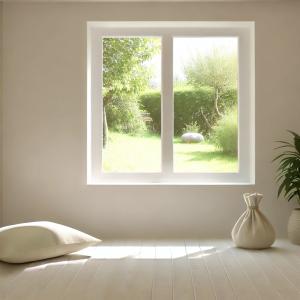By: Dr. Laura Chen, Feng Shui Expert and Holistic Wellness Coach
In a world that often prioritizes accumulation and complexity, the concept of minimalism offers a refreshing alternative—a path to inner peace and spiritual clarity through simplicity. Spiritual minimalism is not just about decluttering physical spaces; it’s a holistic approach to life that involves simplifying our thoughts, emotions, and actions to create space for what truly matters. In this article, we explore how embracing spiritual minimalism can lead to profound personal transformation and inner peace.

Contents
The Essence of Spiritual Minimalism
At its core, spiritual minimalism is about creating space—space in our homes, our minds, and our hearts. It’s about letting go of the excess, the distractions, and the noise that prevent us from connecting with our true selves. By simplifying our lives, we can focus on what is most important: our relationships, our spiritual growth, and our well-being.
Case Study: Anna’s Journey to Simplification
Anna was a successful professional, juggling a demanding career, a busy social life, and a home filled with possessions. Despite her outward success, she often felt overwhelmed and disconnected from her inner self. After attending a workshop on spiritual minimalism, Anna decided to make some changes. She started by decluttering her home, removing items that no longer served a purpose. As she let go of the physical clutter, she noticed a shift in her emotional and mental state. She felt lighter, more focused, and more at peace. Inspired by these changes, Anna began simplifying other areas of her life, including her schedule and her relationships. She learned to say no to activities and commitments that drained her energy, making room for those that brought her joy and fulfillment. Through this process, Anna discovered a deeper connection to her spirituality and a profound sense of inner peace.

The Benefits of Simplifying for Inner Peace
Embracing spiritual minimalism can have a transformative impact on our lives. Here are some of the key benefits:
1. Mental Clarity and Focus:
When we declutter our physical and mental spaces, we free up energy and attention for what truly matters. This leads to greater mental clarity and focus, allowing us to engage more fully in our spiritual practices and daily activities.
Example: John’s Clarity Through Minimalism
John, a writer and spiritual seeker, often struggled with distractions and mental clutter. His home office was filled with papers, books, and unfinished projects, making it difficult for him to concentrate. After learning about spiritual minimalism, John decided to declutter his workspace. He removed unnecessary items, organized his desk, and created a simple, peaceful environment. The impact was immediate—John found it easier to focus on his writing and felt a renewed sense of inspiration and creativity.

2. Emotional Freedom:
Letting go of excess possessions, relationships, and commitments that no longer serve us can lead to emotional freedom. This process allows us to release attachments and emotional baggage, creating space for inner peace and contentment.
Example: Emily’s Emotional Liberation
Emily had always been a people-pleaser, saying yes to every request and maintaining relationships that were draining. She realized that her constant need to please others was leaving her feeling exhausted and unfulfilled. Inspired by spiritual minimalism, Emily began setting boundaries and letting go of toxic relationships. She also simplified her social calendar, choosing to spend time with people who uplifted her. As a result, Emily experienced a profound sense of emotional liberation and inner peace.
3. Spiritual Growth:
Simplifying our lives allows us to focus more on our spiritual growth. By removing distractions and unnecessary commitments, we can dedicate more time to meditation, mindfulness, and other spiritual practices.
Case Study: Sophia’s Spiritual Awakening
Sophia, a busy entrepreneur, often felt disconnected from her spiritual path. Her days were filled with meetings, deadlines, and constant activity, leaving little time for self-reflection or spiritual practices. After reading about spiritual minimalism, Sophia decided to make some changes. She began by simplifying her schedule, carving out time each day for meditation and mindfulness. She also decluttered her home, creating a serene space for her spiritual practices. As she embraced simplicity, Sophia experienced a spiritual awakening, reconnecting with her inner self and finding a sense of peace and purpose.

Practical Steps to Embrace Spiritual Minimalism
Embracing spiritual minimalism is a journey that involves both inner and outer work. Here are some practical steps to help you get started:
1. Declutter Your Physical Space:
Begin by simplifying your home and living spaces. Remove items that no longer serve a purpose or bring you joy. Create a peaceful, clutter-free environment that supports your spiritual well-being.
Example: Maria’s Minimalist Home
Maria, a holistic wellness coach, decided to embrace spiritual minimalism by decluttering her home. She started with her bedroom, removing excess furniture, clothes, and decorations. She kept only the items that brought her peace and happiness. The result was a serene, calming space that became her sanctuary for meditation and relaxation. This change not only improved her physical environment but also had a positive impact on her mental and emotional well-being.
2. Simplify Your Schedule:
Review your daily and weekly schedule, and identify activities and commitments that drain your energy or don’t align with your values. Consider letting go of or reducing these activities to create more space for rest, reflection, and spiritual practices.

Example: David’s Simplified Life
David, a corporate executive, was known for his hectic schedule. He rarely had time for himself, let alone for spiritual practices. After learning about spiritual minimalism, David decided to take a different approach. He began by identifying the activities that were most important to him, such as spending time with his family and practicing mindfulness. He then made a conscious effort to say no to unnecessary meetings and social events, freeing up time for the things that mattered most. This shift allowed David to find a better work-life balance and reconnect with his spiritual path.
3. Practice Mindful Consumption:
Adopt a minimalist approach to consumption by being mindful of what you bring into your life. This includes not only physical possessions but also information, relationships, and experiences. Choose quality over quantity and focus on what truly enriches your life.

Example: Lisa’s Mindful Choices
Lisa, a marketing professional, had always been a shopaholic, buying the latest trends and accumulating a closet full of clothes she rarely wore. After discovering spiritual minimalism, Lisa decided to change her approach to consumption. She began making mindful choices, buying only what she truly needed and what aligned with her values. She also became more selective about the media she consumed, choosing content that inspired and uplifted her. This shift not only simplified Lisa’s life but also brought her a deeper sense of fulfillment and peace.
4. Cultivate Inner Simplicity:
In addition to simplifying your external environment, focus on cultivating inner simplicity. This involves letting go of limiting beliefs, negative thought patterns, and emotional baggage that no longer serve you.
Example: Rebecca’s Inner Transformation
Rebecca, a therapist, was often weighed down by negative thoughts and self-doubt. She realized that her inner turmoil was affecting her peace of mind and her ability to connect with her clients. Inspired by spiritual minimalism, Rebecca began practicing mindfulness and journaling to identify and release these negative patterns. Over time, she noticed a significant improvement in her mental and emotional well-being. By letting go of what no longer served her, Rebecca was able to cultivate a sense of inner simplicity and peace.

Conclusion
Spiritual minimalism offers a path to inner peace and spiritual growth by simplifying our lives and focusing on what truly matters. Whether it’s decluttering our homes, simplifying our schedules, or cultivating inner simplicity, the journey of spiritual minimalism can lead to profound transformation and fulfillment. By embracing this holistic approach, we can create space for inner peace, clarity, and spiritual well-being.
Dr. Laura Chen is a renowned Feng Shui expert and holistic wellness coach with a Ph.D. in Environmental Psychology. With over 15 years of experience, she specializes in applying Feng Shui principles to improve various aspects of life, including health, relationships, and personal well-being. Dr. Chen's unique approach integrates ancient Feng Shui wisdom with modern practices to create harmonious living spaces that enhance sexual energy and intimacy. She conducts workshops and provides personalized consultations to help individuals and couples transform their environments for better health and stronger relationships.


